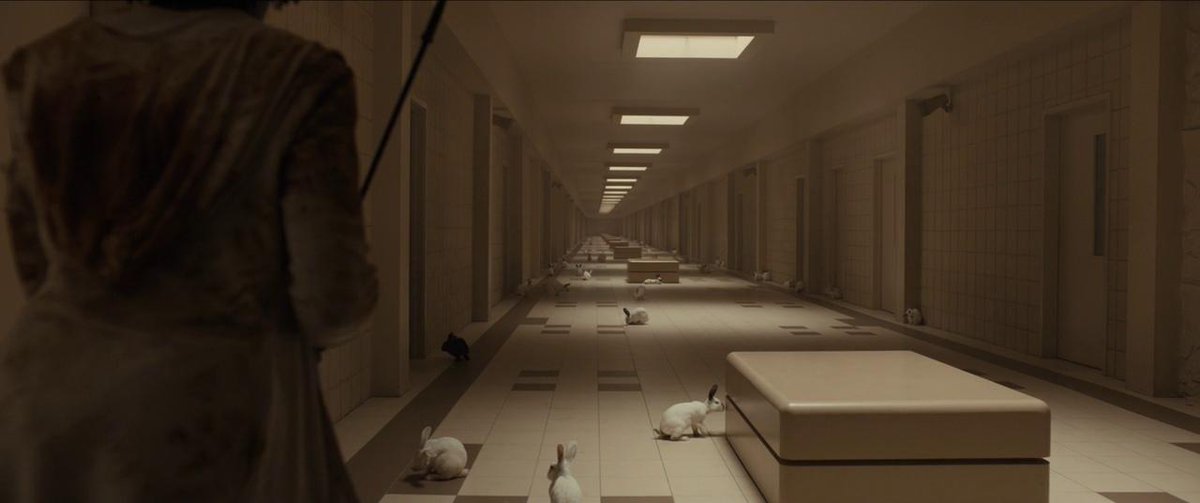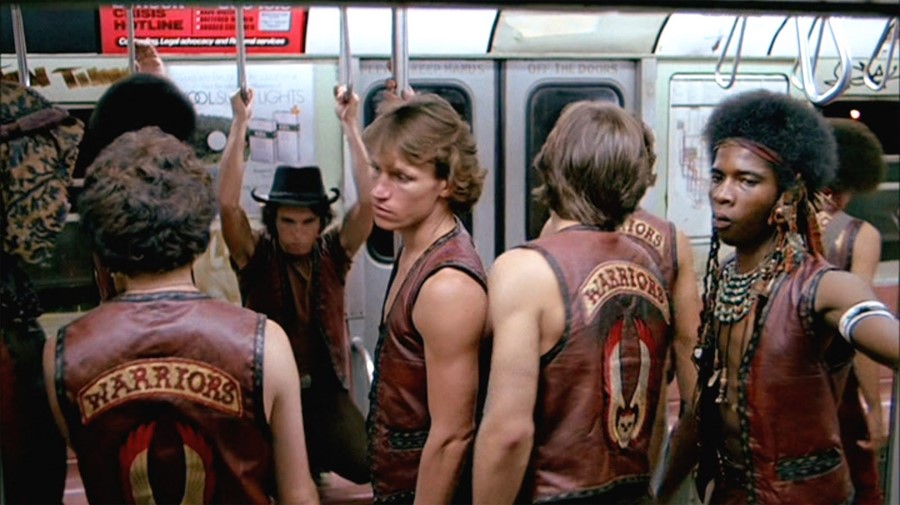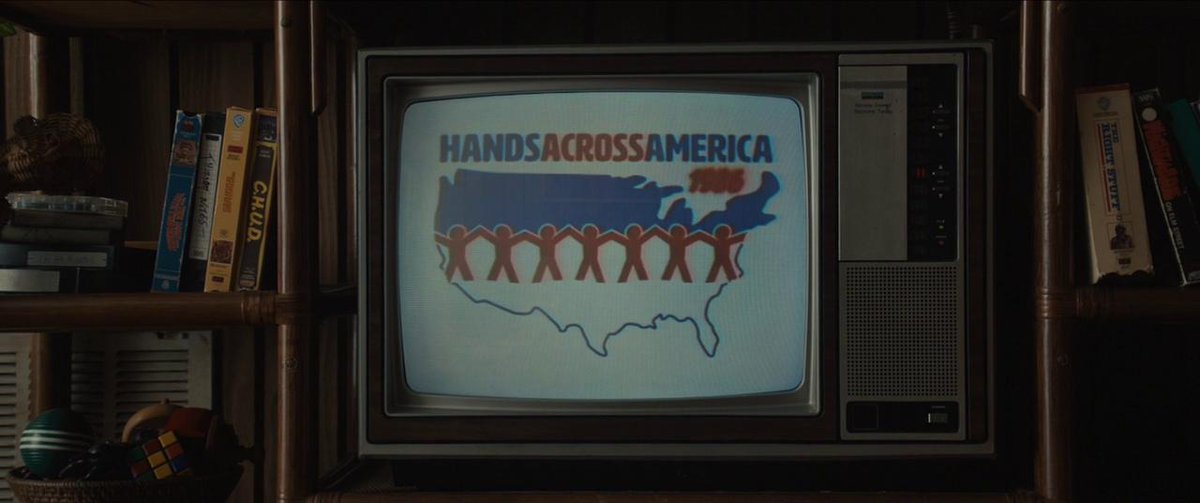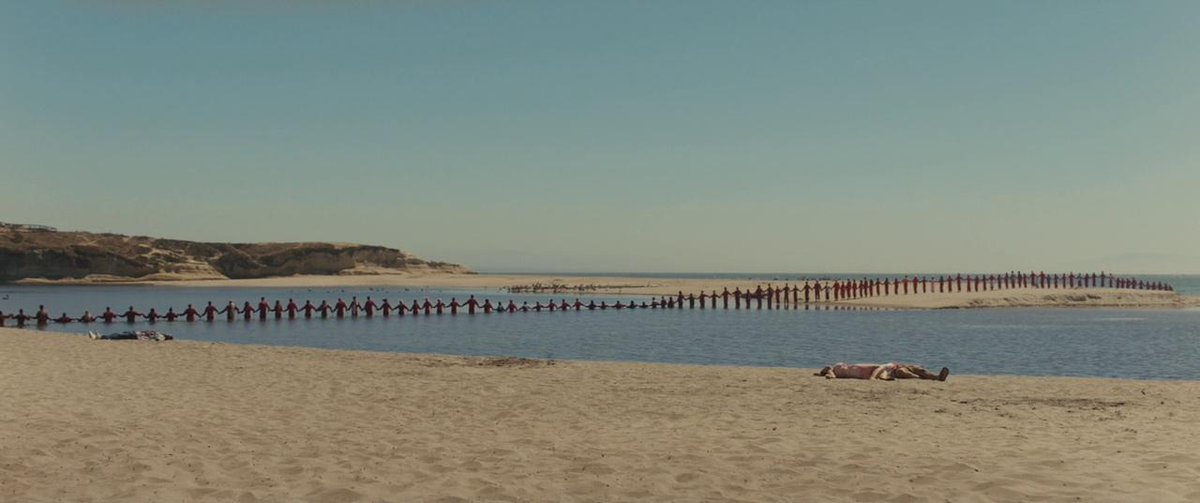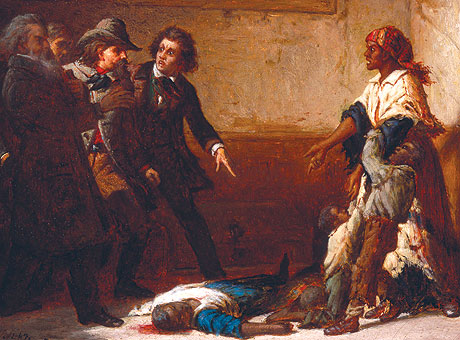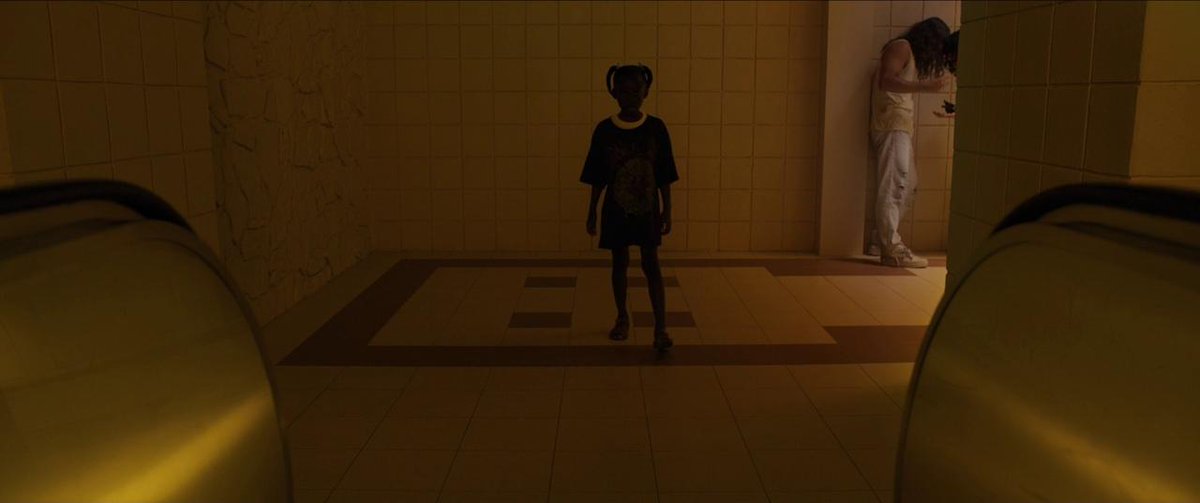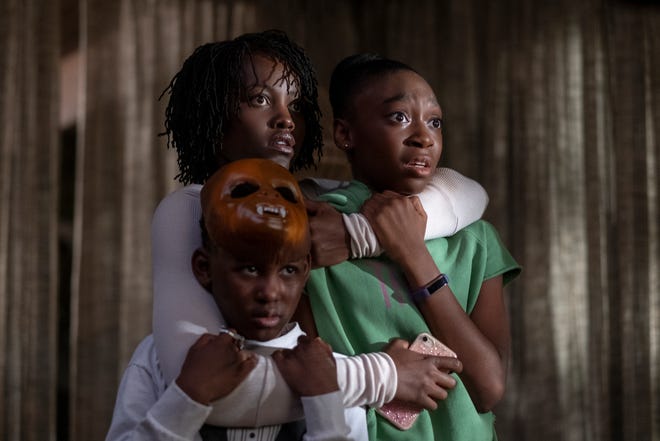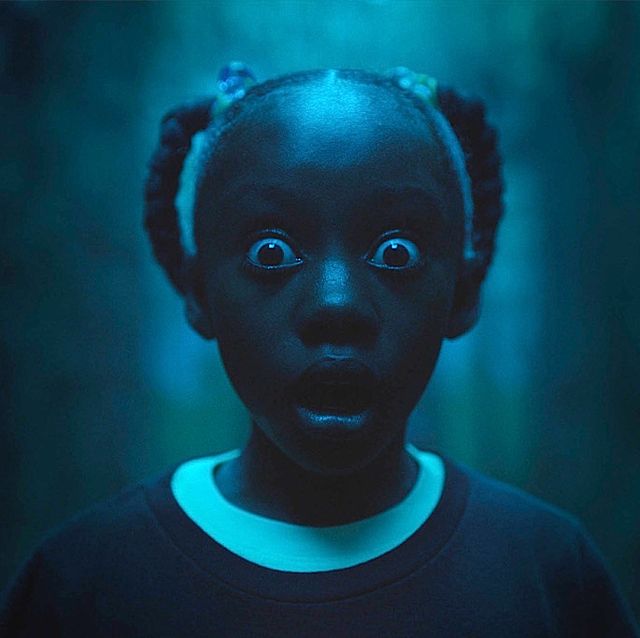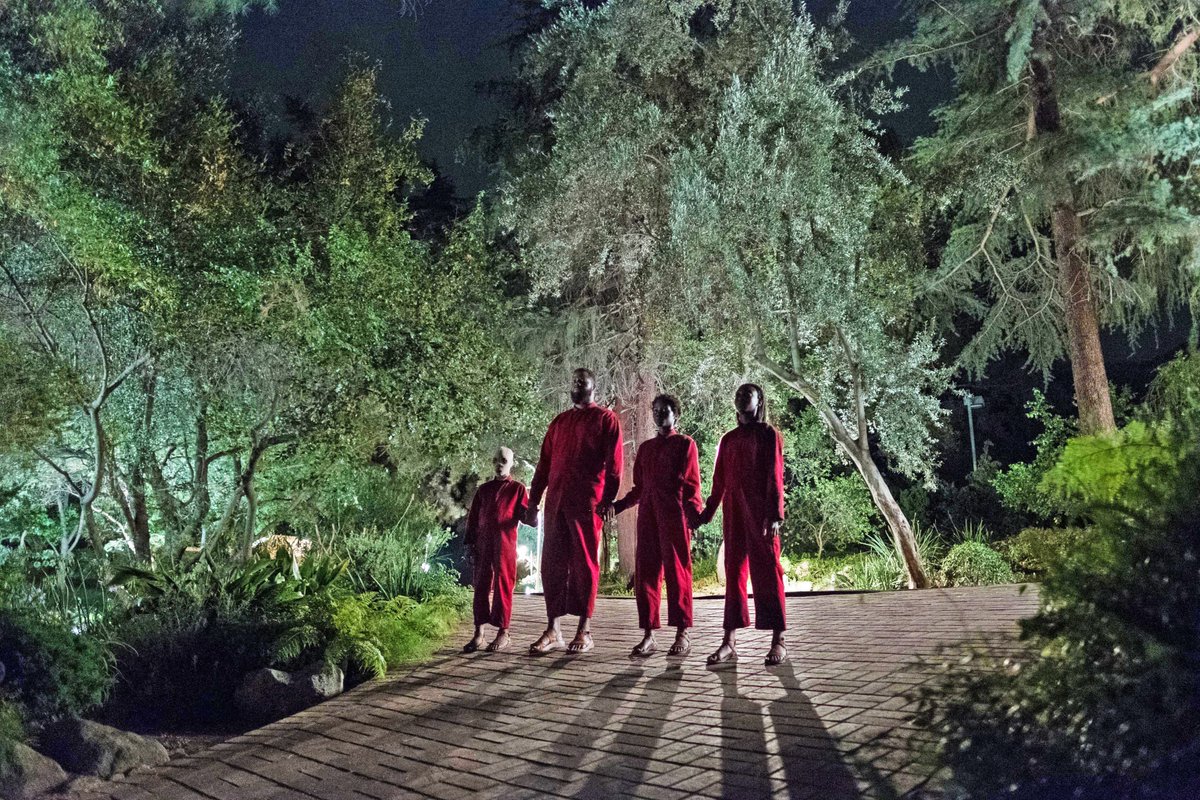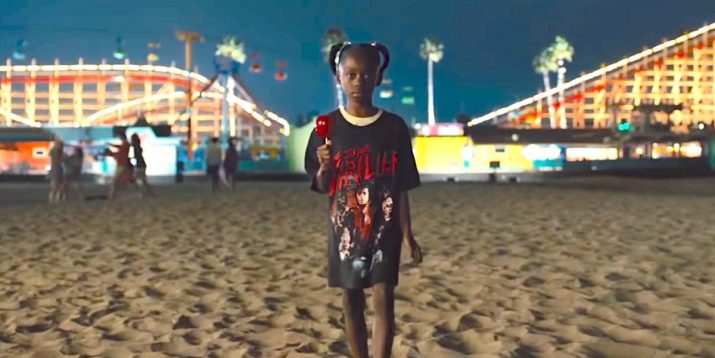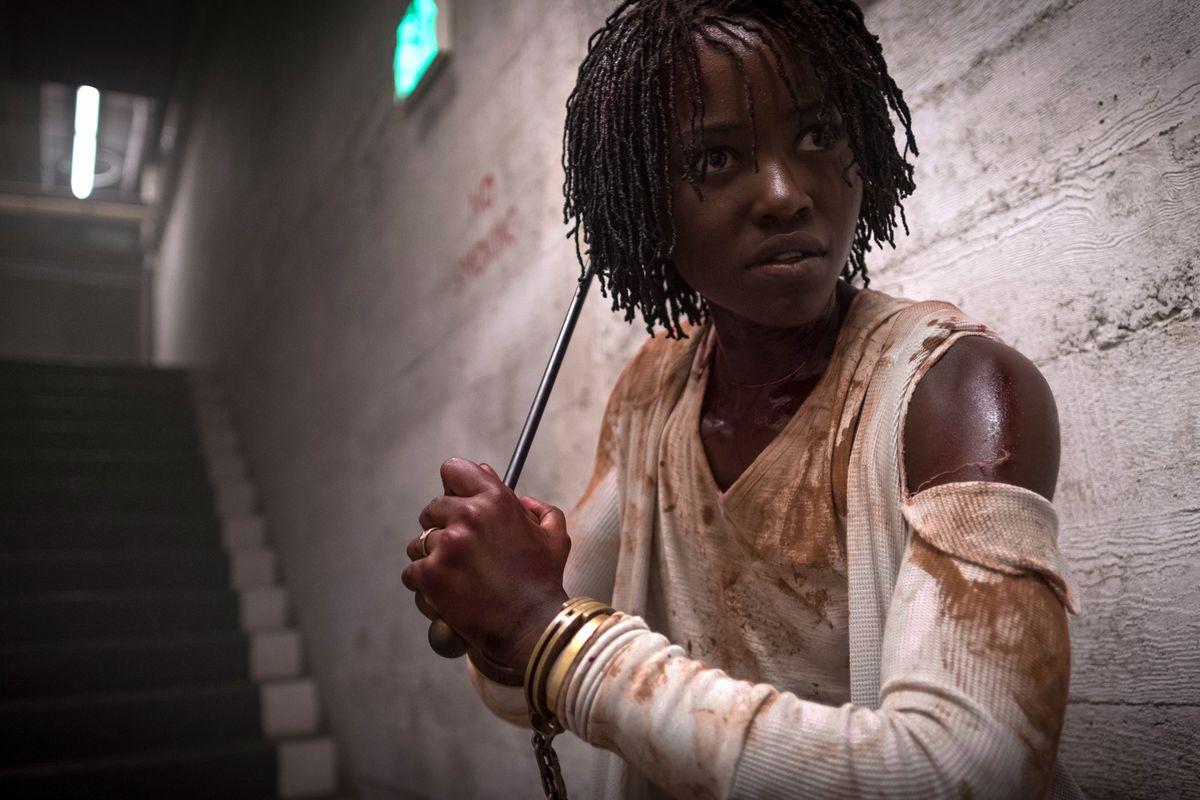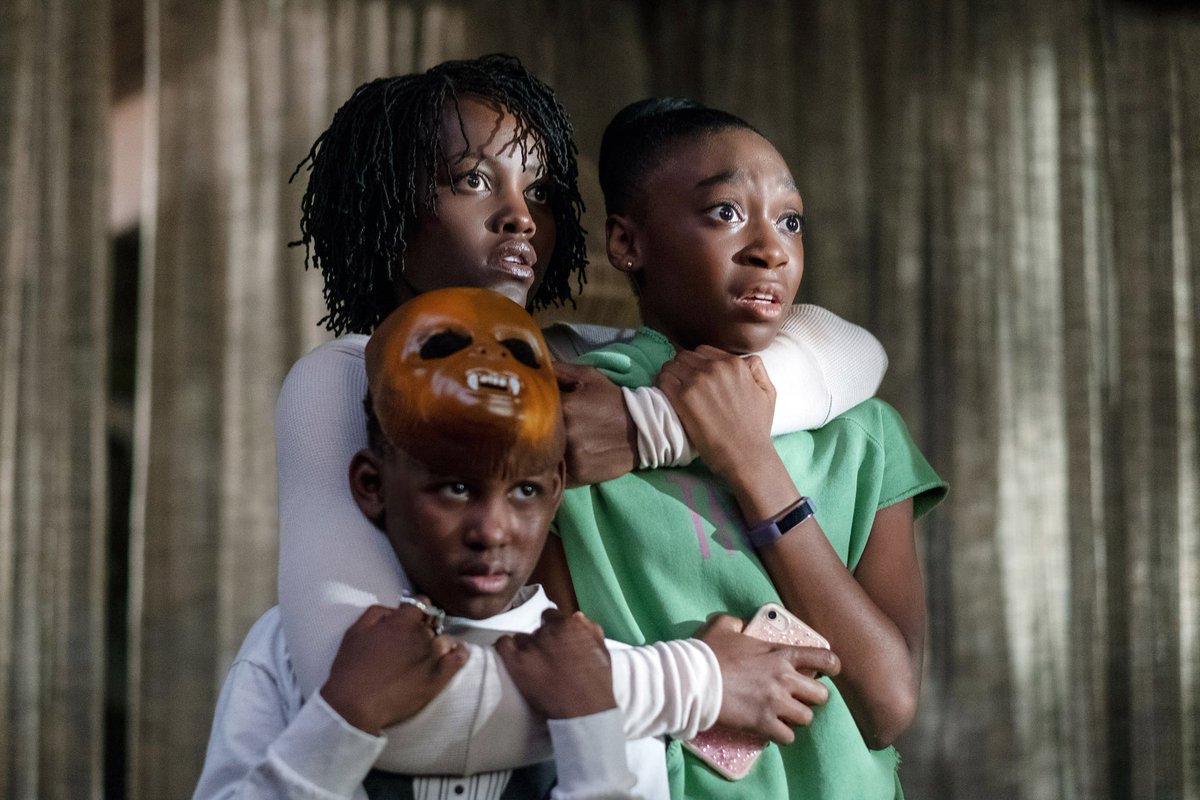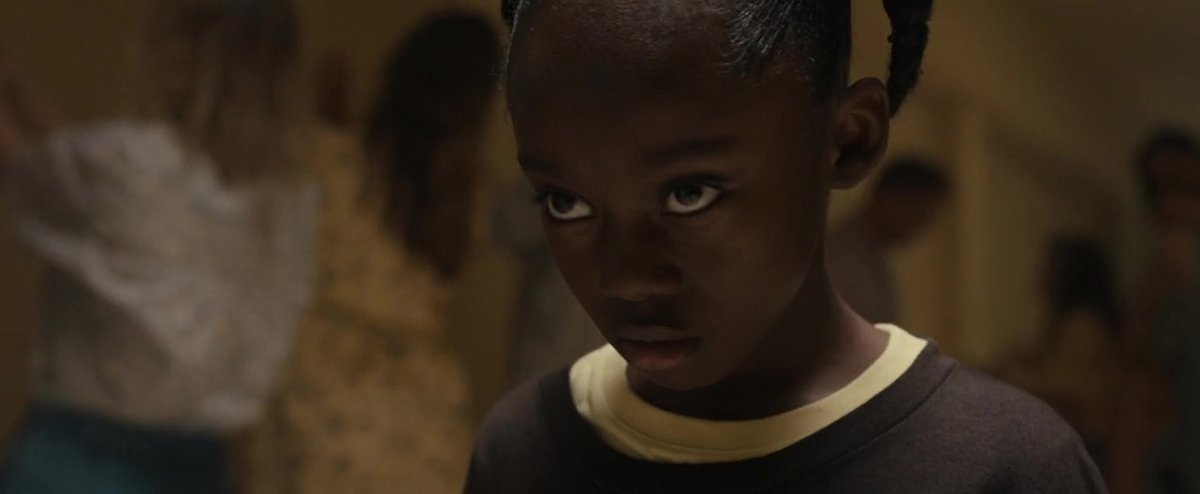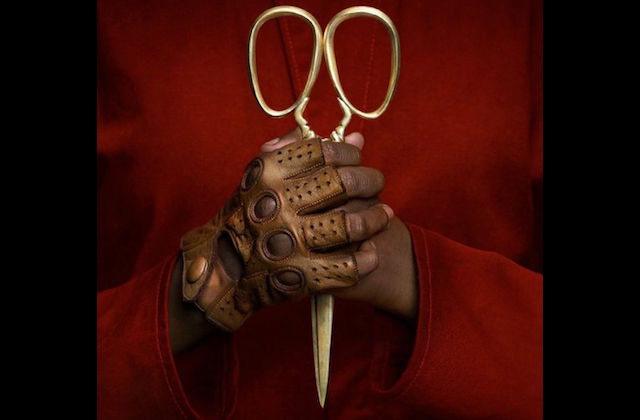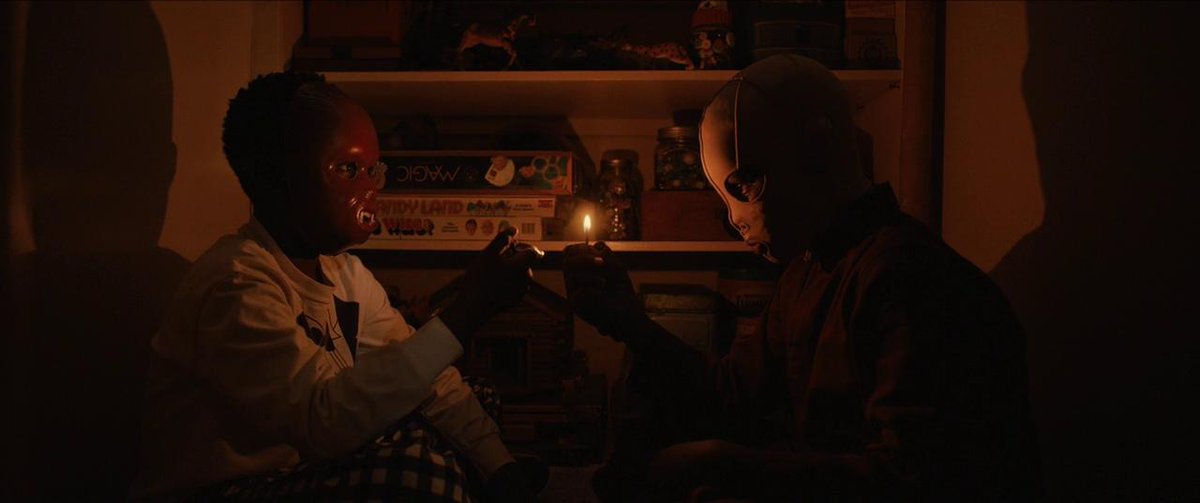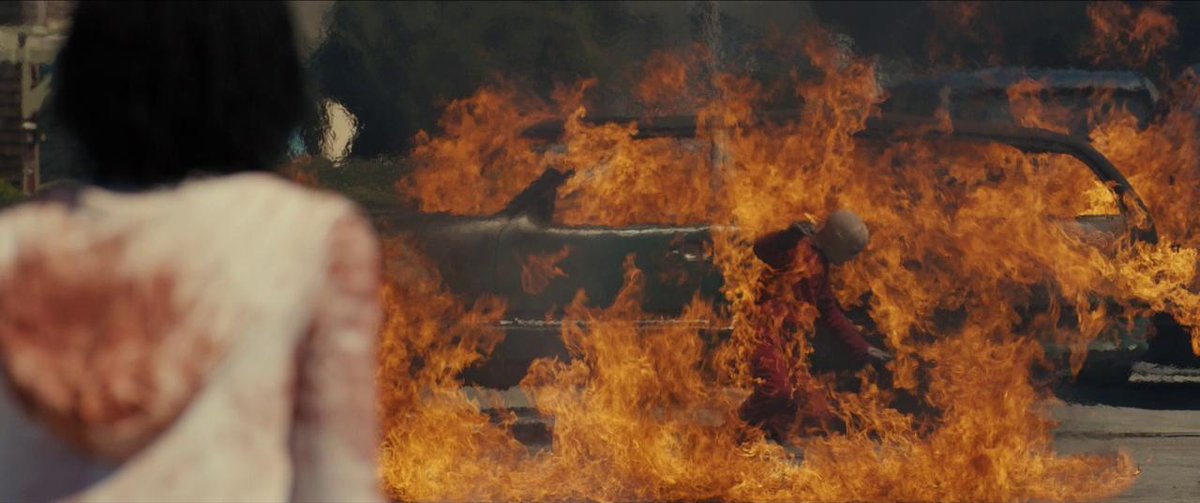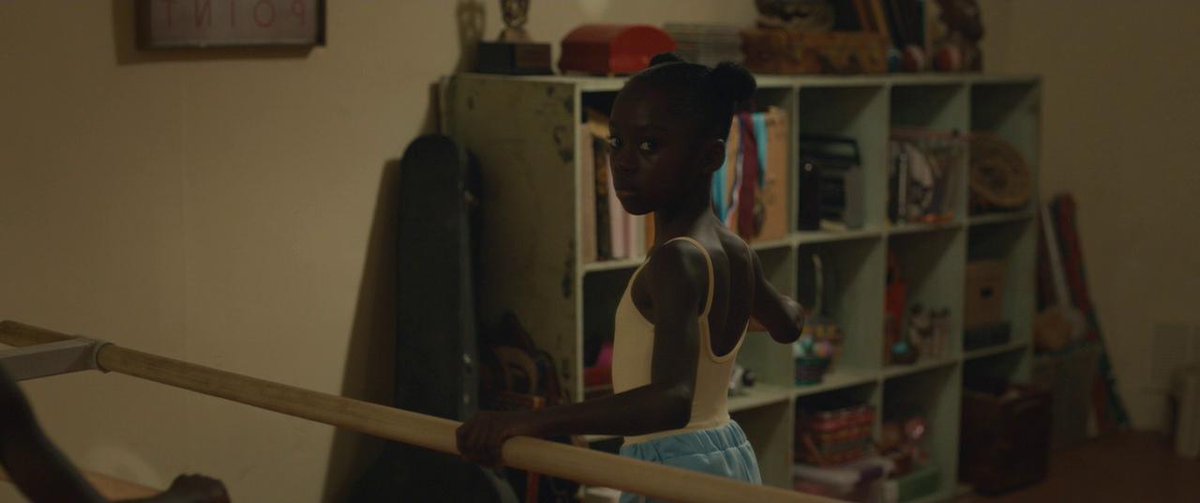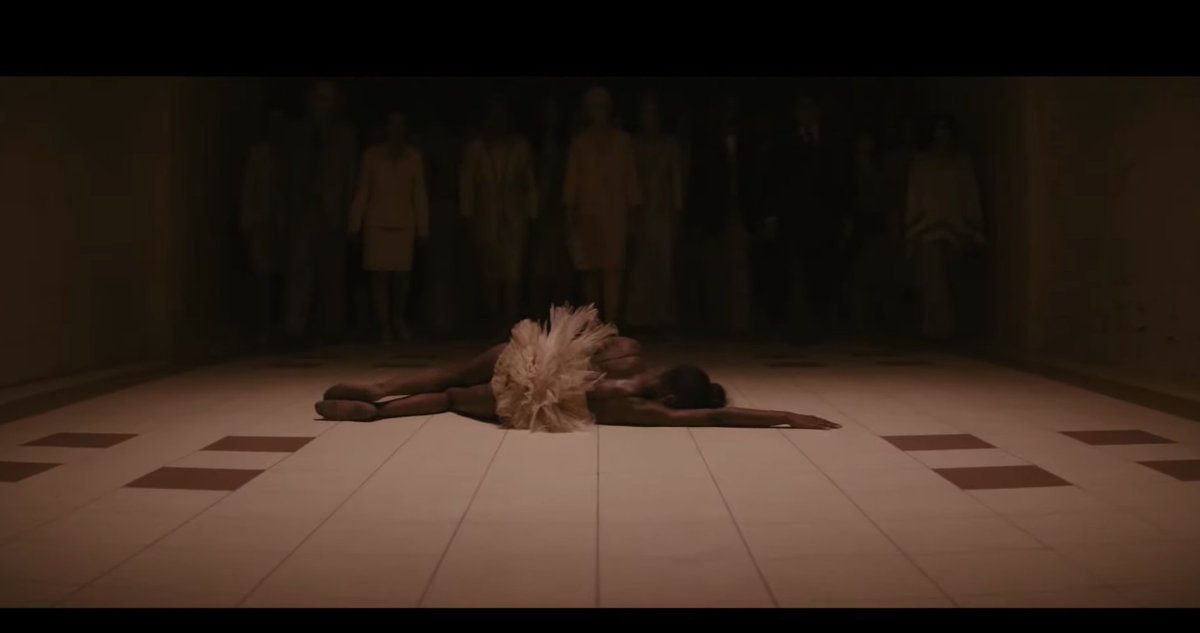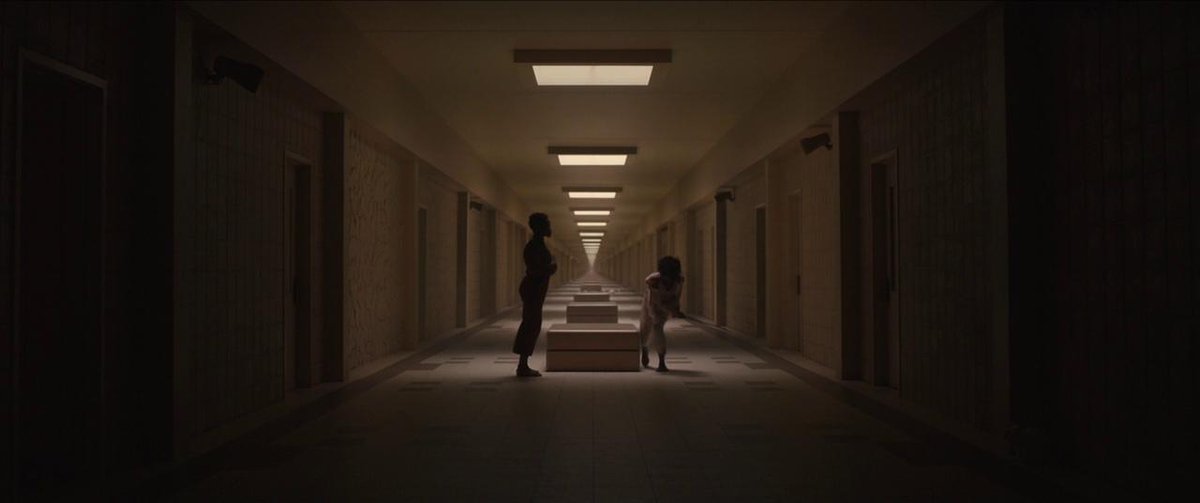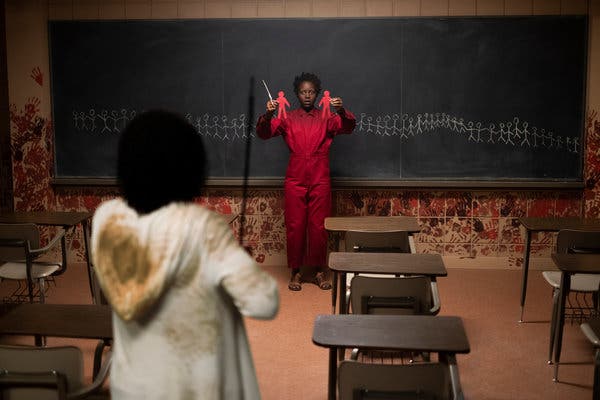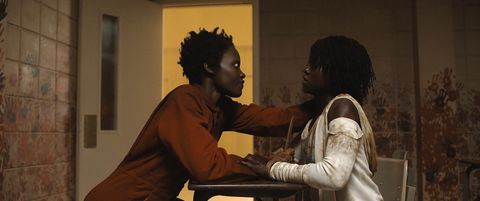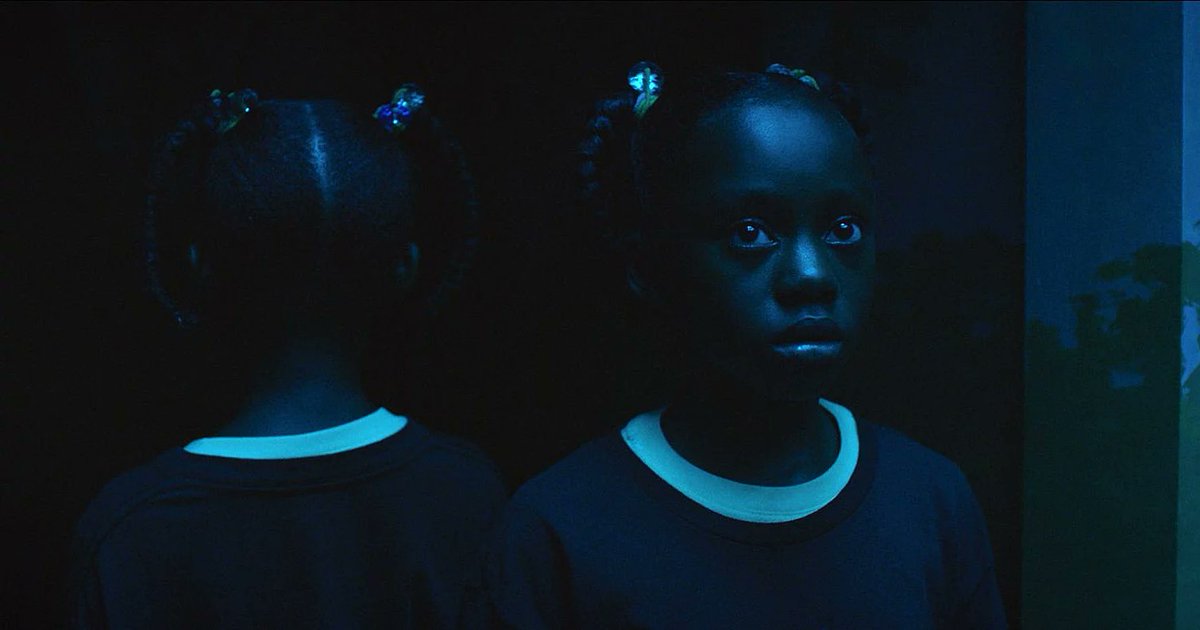Aight, we doing it again.
How katabasis, Jordan Peele& #39;s "US", and Euripides& #39; choral lyrics make the case for studying Greek tragedy as horror genre.
A Thread:
How katabasis, Jordan Peele& #39;s "US", and Euripides& #39; choral lyrics make the case for studying Greek tragedy as horror genre.
A Thread:
First of all: katabasis (literally "going down" or a descent) can refer to different types of descent--I& #39;m most used to studying it in the form of underworld journeys in ancient myth across the Mediterranean (not just Greek and Roman, but Egyptian and Akkadian/Sumerian as well).
There are two main scenes of katabasis in "Us" - in the beginning and the end, focusing on the characters of Adelaide and Red (not to mention the whole set-up of the chthonic underground of the country holding soulless doubles).
A katabasis can also reference a return to the coast/or the sea as a liminal space. This sets up nicely with the framing of Adelaide having to return to the beach (Santa Barbara) that she hadn& #39;t been to since she was a child and facing some of her deepest darkest secrets.
Opposite of katabasis is anabasis (or going up from), the most popular being Xenophon& #39;s 4th century book Anabasis (oft translated as "The March Up Country"), which most folks nowadays might know through its use as inspiration for the 1965 comic book and 1979 film "The Warriors"
One of the most quoted lines of the "Anabasis" is "Thálatta! Thálatta!" or "The sea! The sea!" which the army of 10,000 shout as they finally reach the Black Sea. I& #39;m interested in the ways this quote also echoes around "Us", specifically in the Hands Across America plot-thread.
Anabasis also seems to be the general "underground" plot of the film--the armed insurgent uprising that& #39;s to take place and form a visual representation from sea to shining sea. "Thálatta! Thálatta!" indeed...
We& #39;re gonna dip our toes into Euripides soon, but first I want to preface things with some Toni Morrison. Because as much as I enjoyed "Get Out" and "Us", they actually weren& #39;t my first Black horror experiences. I first came to this genre through Toni Morrison& #39;s "Beloved"...
(Which my sister would read to me growing up--probably the main reason I didn& #39;t return to Morrison until after undergrad, lol between that and reading The Bluest Eye in middle school, I was pretty shook from a young age). However it wasn& #39;t until I started reading Greek tragedy...
...that I begin to understand some of the nuances especially around aesthetic horror that she was engaging with. As she says in "Unspeakable Things Unspoken: The Afro-American Presence in American Literature" - "A large part of the satisfaction I have always received..."
"...from reading Greek tragedy, for example, is in its similarity to Afro-American communal structures (the function of song and chorus, the heroic struggle between the claims of community and individual hubris) and African religion and philosophy. In other words..."
"...that is part of the reason it has quality for me--I feel intellectually at home there. But that could hardly be so for those unfamiliar with my "home," and hardly a requisite for the pleasure they take. The point is, the form (Greek tragedy) makes available..."
"...these varieties of provocative love because /it/ is masterly--not because the civilization that is its referent was flawless or superior to others."
Those links which Morrison finds between Black communal structures and Greek tragedy are precisely what I& #39;m interested in.
Those links which Morrison finds between Black communal structures and Greek tragedy are precisely what I& #39;m interested in.
It& #39;s what terrified me growing up--the links she& #39;d pull from the Euripidean tragedy of Medea to highlight the horrific nature of Margaret Garner& #39;s life into something new and hybrid--twisted up yet familiar. And echoing the past: like Thomas Satterwhite Noble& #39;s "The Modern Medea"
For a further account of Euripides and Morrison, I highly encourage everyone to check out @reginalatinae& #39;s "Self-Definition, Community, and Resistance: Euripides& #39; & #39;Medea& #39; and Toni Morrison& #39;s & #39;Beloved& #39;"--she& #39;s been doing this far longer than I have:
…https://blackclassicismsp18.files.wordpress.com/2018/02/haley_self-definition-community-and-resistance-euripides22-medea22-and-toni-morrisons22-beloved22.pdf">https://blackclassicismsp18.files.wordpress.com/2018/02/h...
…https://blackclassicismsp18.files.wordpress.com/2018/02/haley_self-definition-community-and-resistance-euripides22-medea22-and-toni-morrisons22-beloved22.pdf">https://blackclassicismsp18.files.wordpress.com/2018/02/h...
All that being said...I actually came at Euripides from an interesting angle with "Us"--I was listening to the first song on the soundtrack "Anthem" to get inspiration for some choral chanting I& #39;m composing for @AncientDrama& #39;s upcoming production of Euripides "Iphigenia in Aulis"
And I had already been considering the figure of Helen around Peele& #39;s work--though a Homeric Helen in comparison to Georgina (the real Georgina, if that is her name) in my thread on "Get Out", especially my frustrations on the limitation of that Helen: https://twitter.com/theoctopiehole/status/1295431791189229568?s=20">https://twitter.com/theoctopi...
(And at the end of that thread, I already mentioned how I thought Euripides& #39; "Helen" might be a good lens to view Adelaide and Red through--again, I& #39;m not making the claim that Peel was influenced by this play in making "Us"--though lol @JordanPeele feel free to correct that...
...because...ngl, that& #39;d be freaking wild omg--but rather looking at things through that comp-lit Morrison lens to get to something more akin to comparative media. Also because Greek tragedy might be far more like film than we give it credit for) https://twitter.com/theoctopiehole/status/1288556671355088897?s=20">https://twitter.com/theoctopi...
So why "Helen"? And why choral lyrics? Well, for those who don& #39;t know, all of Greek tragedy had a chorus who were singing around each episode of events--much more akin to our contemporary musical theater than the dramas onstage today--and the music was very important.
It helped set the atmosphere of the tragedies (and often drove the plot forward in mythic metaphor). Euripides in particular had many musical innovations and his later lyrics started dabbling in the dangerous genre of "New Music" (a genre deeply condemned by Plato).
Also there are some interesting parallels between "Us" and the plot of "Helen" vs some of the mythic motifs--let& #39;s start with the plot. "Helen" is actually a very strange and interesting story--it makes the claim that Helen did not, in fact, go to Troy...
...but rather was replaced with an "eidolon" (a double, an image, a shade) that Paris abducted and started a war over. Instead the REAL Helen was whisked away by the goddess Hera to Egypt, where she& #39;s remained ever since
(maybe inspired by a story in Herodotus).
(maybe inspired by a story in Herodotus).
Furthermore, being at the mouth of the Nile by the sea, we return to the themes of katabasis--both physical and emotional, given the disinformation that Helen& #39;s dealing with right off the bat around whether her family is alive, or if they& #39;ve survived the decade-long war.
Helen deals with a great deal of frustration--of the blame that is to come her way, of the ways in which she& #39;s might be scapegoated--all because of a drastic yet hidden act.
Though hey, shoutout to her husband, Menelaus, when he does show up--he& #39;s a figure that Euripides generally doesn& #39;t give great characterization to, but he& #39;s actually pretty empathetic and hilarious in this one.
Helen& #39;s also hatching her own plot to escape with her husband--it& #39;s why I find her such a useful figure for both Adelaide and Red when thinking through katabasis/anabasis: I think the parallels between her careful plotting and misinformation really resonate with "Us".
And on the resonance note--choral lyric! Now I was getting into Euripides& #39; choral lyrics in "Helen" to help try and give some continuity to my lyric composition in "Iphigenia in Aulis", which led me to one of my oldest katabatic figures: Persephone.
Persephone& #39;s only referenced in two of the choral odes in "Helen" (the Parados and Stasimon 3) yet it& #39;s also to draw a direct parallel between her and Helen--as two figures who are unwittingly abducted and taken to an obscured land without anyone knowing.
Not to mention both the songs reference aspects of anabasis and katabasis--the Parodos has Helen begging Persephone to release the sirens to rush up to the earth to help aid her in lamenting, and Stas3 has Demeter as a mother rushing down the mountain to search for her daughter.
Persephone as a figure I think resonates again with Red/Adelaide. In her myth there are questions of agency in society, exogamy (literally being sent away for marriage to a far off land) and motherhood (with Demeter), necessity and function.
(One day I& #39;ll look at "Us" and "The Bluest Eye"... one day...I& #39;m so not emotionally prepared for that at the moment though omg)
Also--going from red candied apple to raw and bloody rabbit meat WOOF this is a whole new level of katabatic consumption to consider here.
And to wrap things up, I actually want to bring up one final figure from Greek mythology who isn& #39;t present in this play, but who& #39;s someone I meditate on a lot when thinking about choral movement--Ariadne (and no, not just because I named my medium blog after her constellation).
Ariadne is often not the most acknowledged figure around the myth of Theseus going down into the labyrinth to fight the minotaur--yet her contributions are very essential. She arms him and gives him the thread to help him find his way back out (a tether, if you will).
On the note of Theseus and the Minotaur, I wasn& #39;t really going to consider them as figures to compare--but I also can& #39;t ignore the interesting parallels between Red and Adelaide& #39;s sons (and the question of which is truly which) and the questions around monstrosity that brings up.
Not to mention the gruesome tethered end of one that causes the other to be abducted and taken below into the tunnels, while Adelaide has to truly arm herself to face her own worst monster in a labyrinth we learn she knows a little too well...
Which leads me to my favorite parallel--the labyrinth at the Palace of Knossos is thought to be a choral dancing ground--it& #39;s stated as such in Homer& #39;s "Iliad" in the description of the Shielf of Achilles. So let& #39;s pull all of these threads together (pun absolutely intended):
We& #39;ve got Adelaide descending to a sort of labyrinth to fight Red for the sake of her son, they end up fighting in a way that hearkens back to the dancing they did in their youth--and it ultimately ends with one killing the other, a "suicide" similar to Ariadne& #39;s fate on Naxos.
(without Dionysus swooping in--who is one of the most central figures to Greek tragedy, another reason why I find his consort an interesting parallel here when thinking through the relationship between Black horror media and Greek tragedy)
So! By putting Red and Adelaide in conversation with the mythic katabatic figures of Helen, Persephone, and Ariadne, hopefully I& #39;ve made the case for understanding the themes and genres of Greek tragedy through the lens of horror!
Given the amount of cultural embeddedness contrasted with religious signifying that Greek tragedy deals with, I want to again stress the Morrison of it all in looking at these pieces of media through how they relate to our own personal experience.
I genuinely don& #39;t believe that Greek tragedy should be preserved for the sake of Greek tragedy. I find worth in it, and as a scholar it is up to me to prove and think through why and where I find that worth, and to make that understanding as accessible as I possibly can.
(Oh, final note I forgot--I think it& #39;s interesting that Persephone has a very loud sonic scream in the Homeric Hymn to Demeter to alert what& #39;s happening to her, and the parallels that draws with Red& #39;s voice--and why her voices is that way)
And I& #39;m finished. This has been "Spooky Classics/Horror Films" with Vanessa lol.

 Read on Twitter
Read on Twitter
